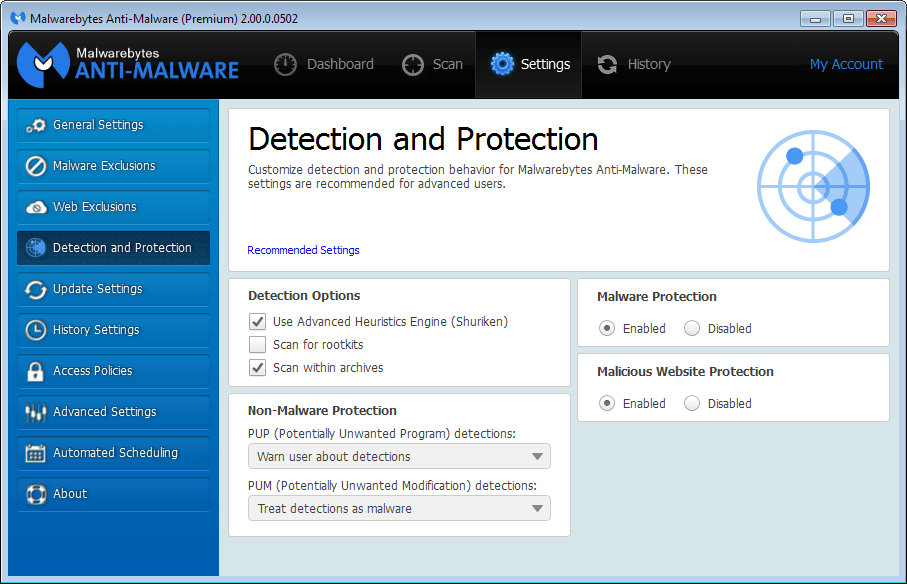

- WHY DOESN MALWAREBYTES SCAN FOR ROOTKITS BY DEFAULT CODE
- WHY DOESN MALWAREBYTES SCAN FOR ROOTKITS BY DEFAULT PC
Cybercriminals use malvertisements to spread their malware to a greater audience of users by submitting malicious ads to online advertisement networks.Īd networks then tailor their ads for specific platforms-serving up ads relevant to previous searches and site display settings for PC or Mac operating systems.
WHY DOESN MALWAREBYTES SCAN FOR ROOTKITS BY DEFAULT CODE
Malvertisements are advertisements that look legitimate but contain malicious code to infect systems-often without any user interaction required.

One of the main reasons why a legitimate site might be blocked is due to malvertising. More notably, we blocked all exploit attempts with our anti-exploit technology.īelow is a showcase of examples of pop-up notifications (in Malwarebytes for Windows) you will see if you have our malicious website protection module enabled. When a huge Angler malvertising campaign hit big-name online publishers in 2016, Malwarebytes protected users by blocking the domains involved in the attack, consequently blocking malicious ads on The New York Times, the BBC, and Newsweek. In other cases, Malwarebytes merely blocks the bad ads shown on legitimate websites. Malwarebytes temporarily divert users away from affected domains until the entire site is completely cleaned up. This happens when legitimate websites get compromised. In some cases, website blocking isn’t permanent. We also block sites such as and for harboring phishing websites and engaging in malicious cryptomining activities, respectively. We block and flag sites for being infected or for containing potentially malicious downloads, such as, which was found to be spreading malware and potentially unwanted programs (PUPs). There are many reasons why certain websites are blocked, and we make it clear in our product notification pop-ups why we do so. The purpose of this blog post is to explain exactly why you might see pop-ups from our website blocking function on a site that you thought you trusted. Or we might block domains that allow cryptomining to take place without consent. To counter these kinds of threats, we at Malwarebytes tend to block entire advertiser networks to prevent our users from being a victim of malicious advertisements, or malvertising. These days, you might be infected with malware by the advertisement banner showing on a legitimate website, or have your CPU gobbled up by cryptominers. Staying safe online requires more than just avoiding websites that look untrustworthy.


 0 kommentar(er)
0 kommentar(er)
